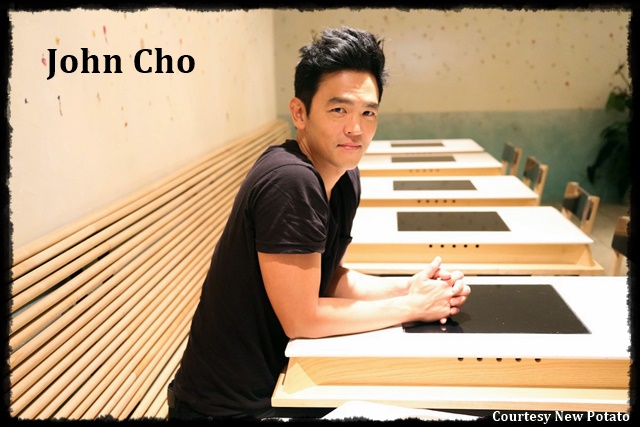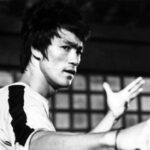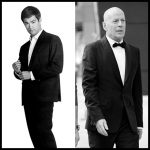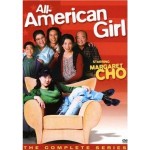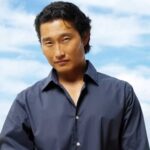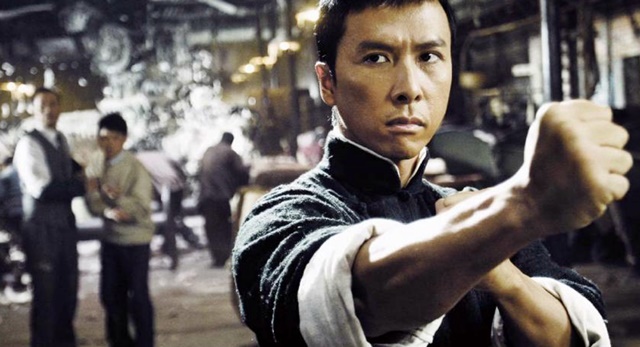
By Jae-Ha Kim
Chicago Sun-Times
August 27, 2004
Jet Li. Jackie Chan. Donnie Yen.
Quick. Which one of these action film stars grew up in the United States? Or, more appropriately, which one of these stars had to leave the United States before he could make a name for himself in Hollywood?
That would be Yen. Sure, while he’s not as famous in the United States as either Li or Chan, he has a loyal following worldwide and an impressive resume of films — the best of which were made in Hong Kong.
So it is ironic that people actually “compliment” the 41-year-old actor and filmmaker, who was born in Canton, China, and grew up in Boston, on his command of English.
“People don’t mean to be rude,” says Yen, one of the stars of “Hero,” which opens today. “Sometimes they just make assumptions because of the way that I look. Asian men are supposed to know how to do martial arts. I am lucky that I do. It certainly helped me get work in films, but I’m an actor and a filmmaker first.”
In the gorgeous period piece “Hero,” Yen plays a swordsman who — in a series of “Rashomon”-inspired flashbacks — plays a slightly different role each time in the assassination attempt against the most powerful man in pre-unified China. There is a scene between Yen and Jet Li that is so beautifully filmed the duel becomes more of a ballet.
“People will compare the film, of course, to ‘Crouching Tiger, Hidden Dragon’ because there is a similar epic feel,” says Yen, sitting in a suite at the Four Seasons Hotel downtown. “But the Chinese audience liked it better in many ways because it explores new territory. ‘Crouching Tiger’ was an amazing film and new for the American market, but the tale it told and the way it was filmed were already known to Chinese moviegoers.”
With both films, stories of love or — more specifically — love lost unfolded amid some of the most awesome martial arts choreography ever filmed.
“One of the things that is always important to me is that action not just be included to fill space,” says Yen, sipping on a cup of coffee. “That would be the easy way out. Action can be a great way to interweave a story line. But a person going to the movies is not going to care if there is no story.”
Yen is one of few actors of Asian descent who has international appeal. His strong string of hit films in Asia has all but ensured him a comfortable existence for the rest of his life. But the majority of Asian-American actors aren’t so fortunate. Stuck in a Catch-22 situation where they can’t get roles that weren’t specifically written for Asian characters, they can either go back to waiting tables or play Chinese restaurant deliverymen on TV.
Or, they can head to Asia and hope to get noticed there.
As Yen points out, “I am not considered fully Chinese in China because I grew up in America. But in America, I’m considered foreign because of the way I look. But I think I’ve managed to make it all work. I don’t like to think of myself as just a Chinese filmmaker or American actor. I like being international.”
Anderson Jones, film critic for CNN Headline News, says, “The problem that actors of Asian descent are facing now isn’t that different from what African-American actors faced in the past. As far as America is concerned, Asian men don’t have any sexuality. More bluntly, American women do not find Asian men sexy. Inspiring desire in people is critical to being a star.
“That’s why we don’t see more Asian images splashed across our TVs and film screens in proportion to the representation to this country. The media often refuses to recognize the reality of the culture that it serves, and Asian Americans get ignored,” he says.
There is a such a dearth of jobs for Asian-American actors in the United States that many — particularly the American-born Chinese — move to Hong Kong to earn a living in their chosen field. Terence Yin was born in Phoenix and graduated from the University of California at Berkeley. The 29-year-old quickly found work as an actor, model and singer in Hong Kong, which helped him land roles in blockbuster films such as “Lara Croft Tomb Raider: The Cradle of Life.” He also has a role in Jackie Chan’s upcoming film “New Police Story.”
It’s the same story for Daniel Wu, who was born in San Francisco and works in Hong Kong.
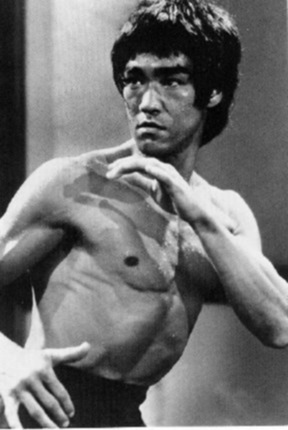 In fact, even Bruce Lee was an Asian American. Born in San Francisco, he returned to Hong Kong as an infant with his parents. As a teenager, he moved to Seattle to attend school and eventually found work as Kato on the “Green Hornet” series. When the producers of “Kung Fu” cast David Carradine — a white man with no martial arts experience — in the role Lee had conceived as a starring vehicle or himself, Lee moved his family back to Hong Kong and became a superstar making films there.
In fact, even Bruce Lee was an Asian American. Born in San Francisco, he returned to Hong Kong as an infant with his parents. As a teenager, he moved to Seattle to attend school and eventually found work as Kato on the “Green Hornet” series. When the producers of “Kung Fu” cast David Carradine — a white man with no martial arts experience — in the role Lee had conceived as a starring vehicle or himself, Lee moved his family back to Hong Kong and became a superstar making films there.
Ho-Sung Pak, who was born in Seoul, South Korea, and reared in Chicago, understands there are limited options for him. Because he was a world-class martial arts champion by the time he graduated from the University of Illinois at Urbana-Champaign with an engineering degree and an MBA, he was offered primarily action roles that required athletic skill.
A fight choreographer working on “Teenage Mutant Ninja Turtles II” handpicked Pak for a role in the film. And in the early 1990s, Pak flew to China to work on “Legend of Drunken Master” with Jackie Chan — who wasn’t yet a household name in the United States.
Though he has been working steadily, Pak says he can be frustrated that he’s still relegated to “Asian” roles.
“The simple fact is there are not many roles for Asian-American actors in America,” says Ho-Sung Pak, phoning from the set of his new film in Romania. “When you’re Asian and you go into an audition for a non-Asian part, chances are you’re not going to get the role.”
Art is supposed to take chances that society may not yet be ready for. But few filmmakers are willing to test the waters to see if Americans will go see a film where an Asian-American actor romances and — shock! — perhaps even beds a Reese Witherspoon or Julia Roberts.
“Not much has changed for Asian and Asian-American actors here because the public imagination about who an Asian American is hasn’t really changed,” says L.S. Kim, assistant professor of film and digital media at the University of California at Santa Cruz.
“We are the model minority. We are the martial arts experts. That’s what people have come to expect.
“I don’t hold much faith in the [film] industry to make it easy for more Asian-American actors to get roles. I hold my faith and hope in the movie viewers to demand more.”
Before Yen heads downstairs to walk along Michigan Avenue, he thinks over a topic that began our interview: Had he not moved to Hong Kong, would he be a working actor in America today?
“I would like to think that I would be making films no matter where I was,” Yen says. “I wouldn’t have to star in them. I would’ve tried to get my own films made. But had that not worked out for me, I would’ve made sure I supported films even if I couldn’t make them. I would’ve been the guy sitting at every movie every night. That would’ve been me.”
Yen for Yune: Local women on who’s sexy
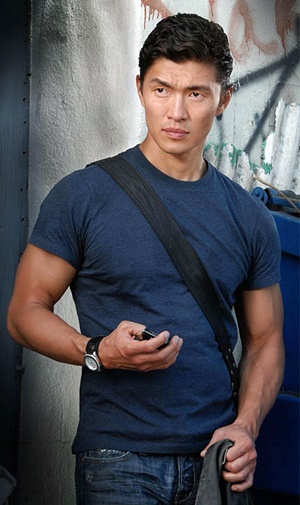 So do American women really find Asian and Asian- American actors sexy?
So do American women really find Asian and Asian- American actors sexy?
We took an informal poll of 10 Chicago area women and asked what they thought of Jet Li, Rick Yune and Donnie Yen.
The majority (eight) said yes.
One said no.
And another said she couldn’t really think of any Asian actors other than Jackie Chan, who she thought was cute but not sexy.
Andersonville resident Tracy Stein said she was eager to see more diversity on screen.
Stein added, “I feel the same way about Rick Yune as I do about Jet Li. They are gorgeous. Anyone who doesn’t think these two men are sex symbols does not have a pulse.”
Perhaps Amanda Foster of Rogers Park summed it up best when she said, “You can find a good-looking guy in any race and you can also find an ugly guy in any race.
“But given that their acting talents are the same, I would rather see Rick Yune and Jamie Foxx on screen than Bruce Willis or Kevin Spacey any day.”
A blueprint for expanded opportunities for Asians
Stephen Spielberg one day may realize that women (and men) find Rick Yune just as attractive as, say, Tom Cruise. But until then, not all filmmakers are content to sit around waiting for Hollywood to join the rainbow coalition.
After reading director Brian Southers’ script for “Missed It” — a story about black high school students — Chicago-based Korean-American filmmaker Man-Sung Son suggested a couple of the roles go to Asian Americans. Southers agreed.
“Brian was really excited about having a multicultural, multiethnic group in this film,” Son says. “I truly believe the key to having more diversity in films is through independent films. …
“In order for many Asian-American actors to get work in big pictures, they are limited to auditioning only for roles written specifically for an Asian character. And how many of those are there? Hardly any. So it’s up to filmmakers to make sure that everyone is included.”
There will be a casting call for “Missed It” on Sept. 10 and 11 (at a site to be announced). The film is set to begin shooting in Ohio in January.
Double-edged difficulties
Actresses of Asian descent trying to find work in Hollywood face the double whammy of being ethnic females. After her work in Jackie Chan’s films, Michelle Yeoh won a co-starring role in 1997’s “Tomorrow Never Dies.” After “Crouching Tiger, Hidden Dragon,” she seemed destined for mainstream success here.
“Asian women have a different problem than Asian men,” says Anderson Jones, film critic for CNN Headline News. “First of all, they’re women, and women have always found it difficult to get work in Hollywood. It’s even worse for Asian or Asian-American women because they’re fighting for very limited roles, most of which are filled up by Lucy Liu right now.”
L.S. Kim of the University of California at Santa Cruz says, “There is a need in Hollywood to exoticize Asian women, so the roles are limited. In the academic world, we refer to the non-stereotypical Asian woman as ‘unruly.’ Margaret Cho is unruly.”
So is Asian-Canadian actress Sandra Oh, who has said her most difficult part of acting has been getting into auditions.
“She was so happy to play [Diane Lane’s friend] in ‘Under the Tuscan Sun’ because it wasn’t written for an Asian actress,” says Kim. “She was wonderful in ‘Arli$$’ because while it’s obvious she looked ethnic, the character wasn’t all about being Asian. She was just part of an ensemble cast, and [series star] Robert Wuhl really fought to get her the part because she was the best for the role.”
The best actress for the role. What a concept.
American-born Asian Americans working primarily in Asia:
Name: Terence Yin
Occupation: Actor
Age: 29
Born: Phoenix
Grew up: Los Angeles
Films: “Lara Croft Tomb Raider: Cradle of Life” (2003); “Colour of the Truth” (2003); “Black Mask 2: City of Masks” (2002)
Name: Daniel Wu
Occupation: Actor
Age: 29
Born: San Francisco
Grew up: San Francisco
Films: “Around the World in 80 Days” (2004); “Enter the Phoenix” (2004); “DragonBlade” (in pre-production)
Foreign-born Asian Americans enjoying success working in the U.S.:
Name: John Cho
Occupation: Actor
Age: 32
Born: Seoul, South Korea
Grew up: Los Angeles
Films: “Harold & Kumar Go to White Castle” (2004); “American Wedding” (2003); “Better Luck Tomorrow” (2002); “American Pie 2” (2001)
Name: Justin Lin
Occupation: Filmmaker
Age: 32
Born: Taipei, Taiwan
Grew up: Los Angeles
Films: “Better Luck Tomorrow” (2002); in pre-production for “Annapolis” and “The Tenth Justice”
